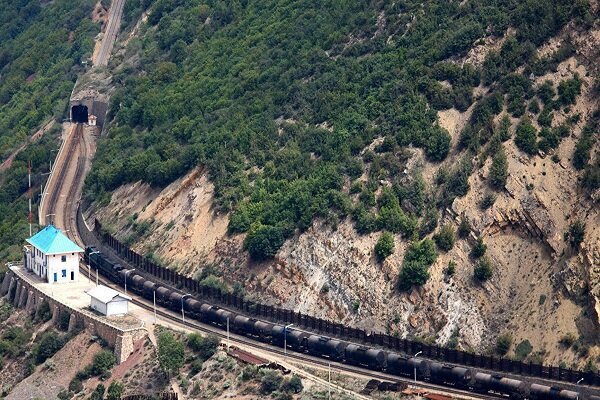Russia, Iran discuss Rasht-Astara railway as Moscow signals stance on 'Trump corridor'

TEHRAN – Russian Deputy Prime Minister Alexey Overchuk said Moscow and Tehran discussed accelerating construction of the Rasht-Astara railway during a meeting between Prime Minister Mikhail Mishustin and Iran’s First Vice President Mohammad Reza Aref on the sidelines of the Eurasian Economic Union (EAEU) summit in Kyrgyzstan.
Speaking to reporters on Friday, Overchuk described the talks as constructive, noting that they also covered the EAEU-Iran free trade agreement and broader transport and logistics cooperation.
Russian experts are already in Iran working on the Rasht-Astara line, he added.
Iran and Russia signed an agreement in May 2023 to jointly build the Rasht-Astara link, a missing segment of the International North-South Transport Corridor (INSTC) along the Caspian Sea’s western flank.
Moscow pledged an intergovernmental loan of €1.3 billion ($1.4 billion) toward the estimated €1.6 billion project.
The line is planned to connect with a rail segment between Astara in Iran and Astara in Azerbaijan, a project involving Tehran, Moscow, and Baku.
Iranian President Masoud Pezeshkian last year ordered his ministers to fast-track development of the INSTC route through Rasht and Astara.
Overchuk also commented on a separate initiative signed last week in Washington, where Armenian Prime Minister Nikol Pashinyan and Azerbaijani President Ilham Aliyev reached a U.S.-brokered peace deal in the presence of President Donald Trump. The accord established what Trump dubbed the “Trump corridor for peace and prosperity,” granting Azerbaijan special transit access to its exclave Nakhchivan.
Armenia is developing the corridor in partnership with Washington, with an agreement that could last up to 99 years, Trump said at the White House signing ceremony.
Asked about the project, Overchuk said Moscow would support Yerevan if it considered the corridor necessary. “Armenia is our strategic ally. If they believe this project serves their interests, we will back them,” he said, adding that Russia supports peace initiatives in the South Caucasus.
Aref, during his meeting with Mishustin, reiterated Iran’s position against foreign interference in regional geopolitics, saying countries of the Caucasus and Central Asia can resolve security and stability issues among themselves.
Overchuk, who will travel to Yerevan next week, said discussions will also cover Armenia’s role in the EAEU after its parliament advanced legislation on joining the European Union. He warned that membership in both blocs is incompatible.
If Armenia were to downgrade its EAEU participation, Overchuk said, the country could face higher food and energy prices and an 80 percent collapse in exports.
Armenia has been a full member of the EAEU since 2014, alongside Russia, Belarus, Kazakhstan, and Kyrgyzstan.
Overchuk said he also plans to meet Azerbaijani officials in Moscow next week to discuss reopening transport links in the South Caucasus.
EF/MA
Leave a Comment